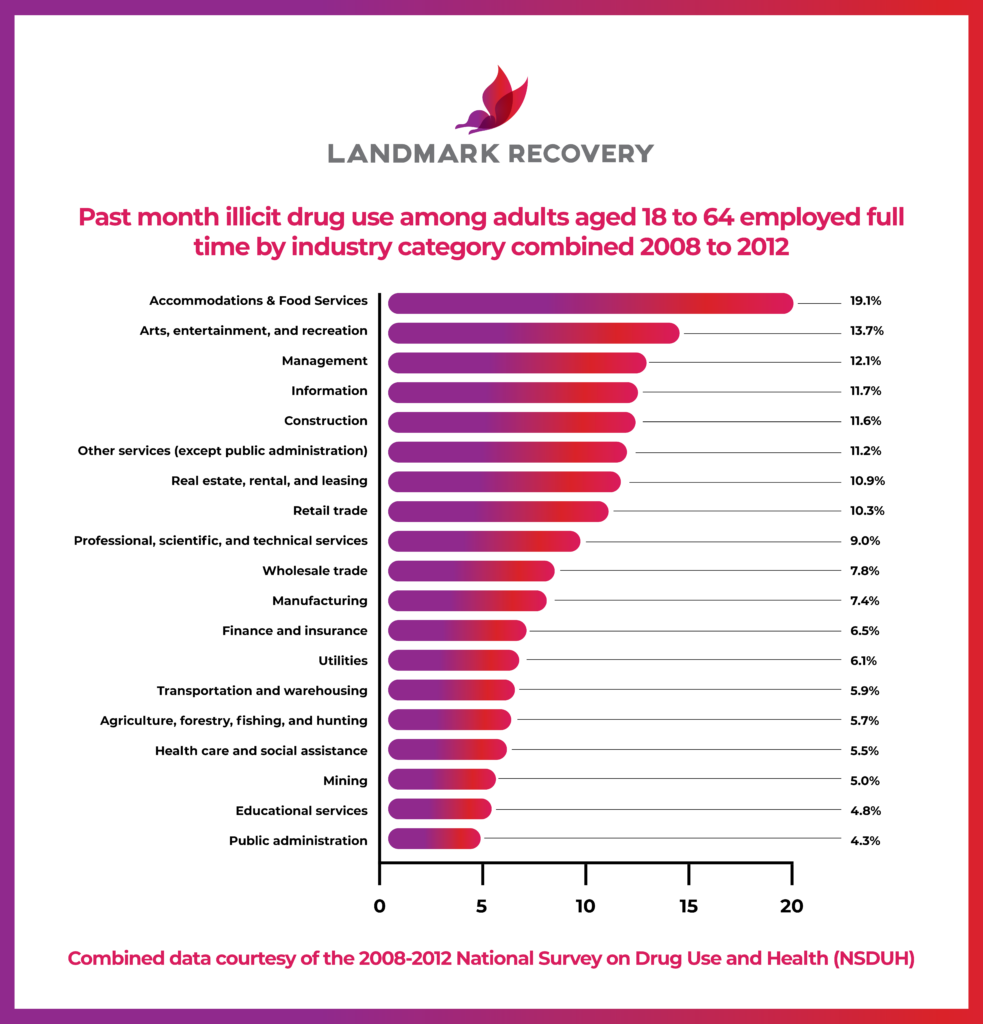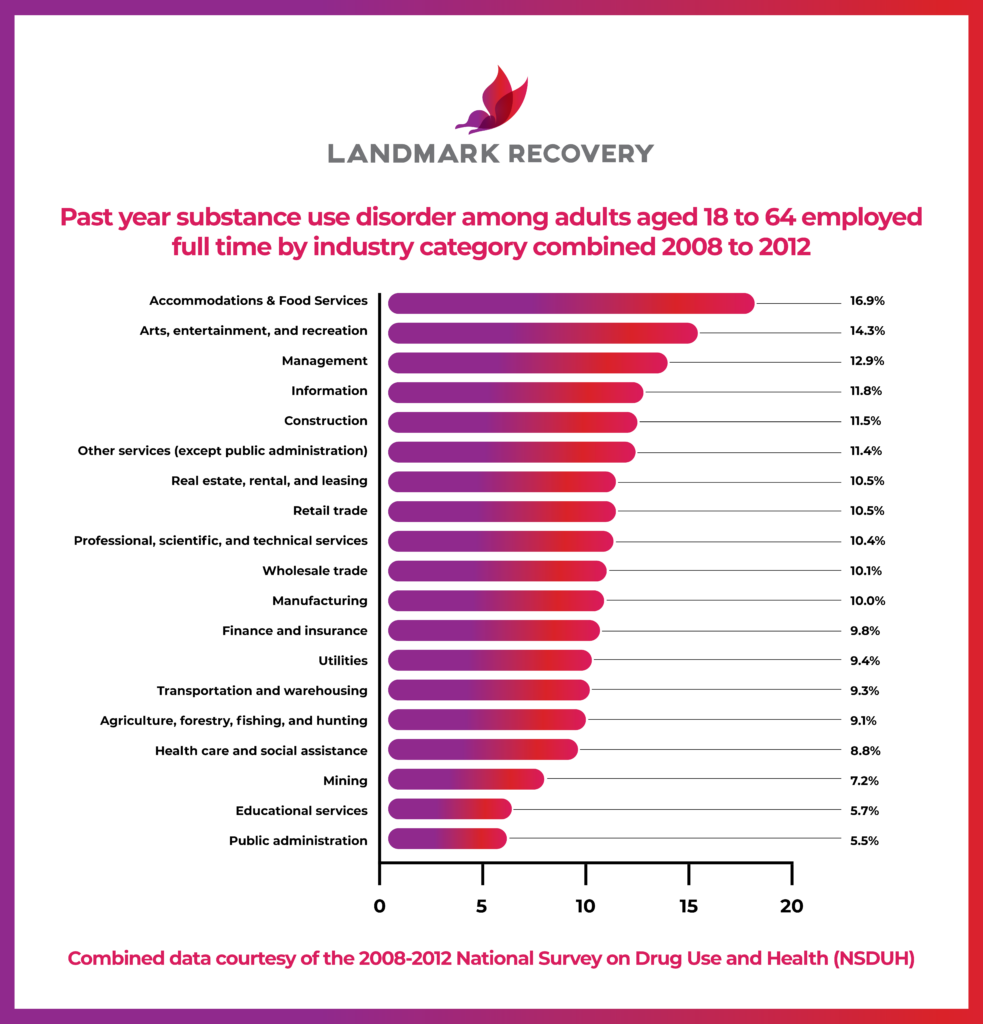Updated: May 25, 2023, at 10:21 a.m.
The food service industry is a major contributor to the U.S. workforce, employing about 10% of America’s workers and serving millions of people every day. However, the industry also faces challenges related to substance abuse and addiction among its workers. According to an online study by the Substance Abuse and Mental Health Services Administration (SAMHSA), workers in the food services industry have been identified as one of the professions with the highest rates of substance abuse and addiction (read it here).
This finding raises the question of whether food service workers are at a higher risk of addiction than other professionals. We’ll take a closer look at how common substance abuse is among food service workers and what factors may contribute to this issue. We’ll also discuss potential solutions to help address it.
Why Is Substance Abuse More Common Among Food Service Workers?
SAMHSA’s report found that workers in the accommodations and food services industry have some of the highest rates of illegal drug use and substance use disorder (SUD). The study used combined data from the 2008-2012 National Survey on Drug Abuse and Health (NSDUH) to come to this conclusion. The findings among adults aged 18 to 64 and employed full-time were as follows:
The Highest Rates of Past-Month Illegal Drug Use (19.1%)

Image Source: SAMHSA
The Highest Rates Of Past-Year SUD (16.9%)

Image Source: SAMHSA
To put things in perspective, the study found that food service workers had significantly higher rates of past-month illegal drug use and past-year SUD (18%) compared to workers in the arts, entertainment, and recreation (13.7% and 14.3%) and construction industries (14.3%). It’s worth noting that addiction is a serious issue in the construction industry as well.
What are the Potential Causes of Higher Drug Abuse Rates Among Food Service Workers?
One of the main reasons for higher drug abuse rates among food service workers is the stressful work environment. According to a report published in the Journal of Social, Behavioral & Health Sciences, restaurant workers are usually required to manage and balance:
- A fast-paced work environment
- Long hours
- Emotions
- Behaviors
This can create a stressful atmosphere for workers. In addition, the shift work schedule can also contribute to disrupted sleep patterns, which can increase stress levels. Stressful working conditions combined with low pay, lack of benefits, and job insecurity can create a high-pressure environment that can lead to substance abuse as a coping mechanism.
What Are Some Solutions to Address the Issue?
Employers can play a significant role in addressing substance abuse among food service workers. Creating a recovery-ready workplace can be a great first step. This means establishing a safe, supportive environment that encourages employees to seek help without fear of losing their jobs. Some possible solutions include:
- Developing a drug-free workplace policy
- Creating awareness about employee assistance programs
- Providing access to confidential counseling and treatment programs
- Offering paid time off (PTO) for employees to seek treatment and recovery support
- Providing education and training on substance abuse prevention and support resources
Choose Recovery Over Addiction
Substance abuse is a serious issue that affects people in all professions, including food service workers. The causes are complex and multifaceted, but by working together, employers and employees can take steps to create a safe and supportive work environment that promotes addiction recovery and wellness.
If you or someone you care about is struggling with drugs, alcohol or addiction, remember that professional help is available. Landmark Recovery is a leading provider of addiction treatment services, offering personalized, evidence-based care to help people develop the confidence to choose recovery over addiction and reclaim their lives. Call 888-448-0302 to speak to a confidential 24/7 admissions specialist and start your journey to recovery.
Visit our locations page to find an addiction rehab center near you.

Choose Recovery Over Addiction
We're here 24/7 to help you get the care you need to live life on your terms, without drugs or alcohol. Talk to our recovery specialists today and learn about our integrated treatment programs.




